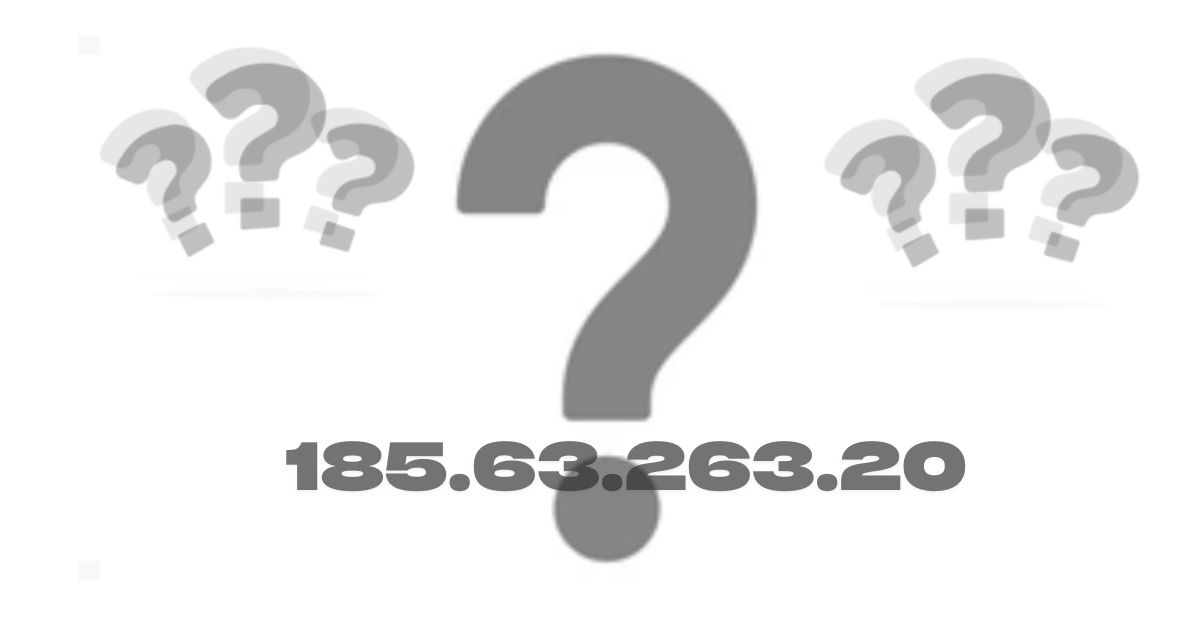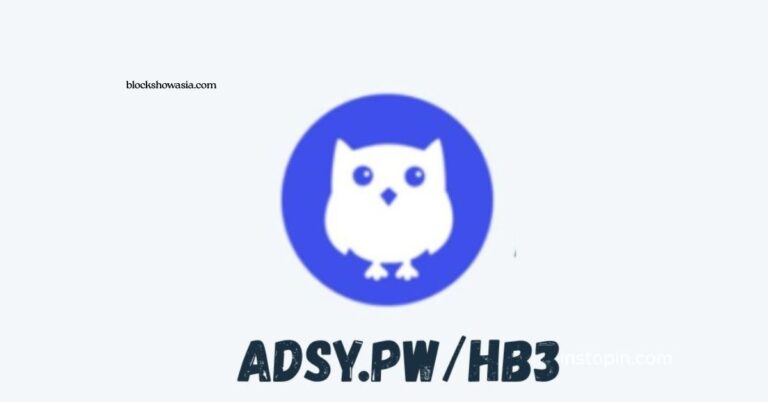Why Is 185.63.263.20 Showing Up in Searches?

You’re undoubtedly a little perplexed, but you’re not the only one who has seen the IP address 185.63.263.20 in a search result, security record, or SEO tool. It appears to be a typical IP address at first glance. However, a closer examination reveals that it is completely invalid. Despite this, it continues to appear in term trends, Google searches, and even internet discussions.
Why, therefore, is a phoney, inoperable IP address like this becoming more popular? That’s what we’ll figure out. Regardless of whether it’s the result of bots, SEO whims, or plain human error, 185.63.263.20 has emerged as an oddly well-liked cyber ghost. Let’s examine what’s happening, if it poses a threat, and what to do if you come across it.
Is It Dangerous? Should You Be Worried?
To be honest, it can be disconcerting to see an odd number like this, particularly if you noticed it in your firewall reports or server logs. The good news is this: Actually, 185.63.263.20 is incapable of doing any harm by itself. The address that your device can connect to isn’t even legitimate.
But here’s where you should be careful:
- If this address shows up in emails, links, or messages, don’t click on it. It could be part of a scam.
- If you find it in your server logs, it could mean someone is trying to trick your system with fake traffic.
- If it keeps coming back, you might want to check your security tools or contact an IT expert.
So no need to panic—but do stay alert.
What to Do If You See 185.63.263.20 in Your Logs
If you run a website or server and find this IP showing up in your logs, here’s what you can do:
- Don’t try to visit it. It’s invalid and won’t lead anywhere.
- Check for patterns. Are other strange IPs showing up too? That might be part of a bigger issue like bot traffic.
- Use a firewall or security plugin. Tools like Cloudflare or Wordfence (for WordPress) can help block bad traffic.
- Report it. If you’re really concerned, you can report it to your hosting provider or a cybersecurity team.
Remember, just because it looks like an IP address doesn’t mean it’s safe.
How Does Google Treat Invalid IP Addresses?
Despite its intelligence, Google’s search engine occasionally detects odd or fraudulent material. Google may classify 185.63.263.20 as a keyword even when it has no meaning if it is frequently searched for or if it appears in blogs, tools, or forums.
This could cause:
- Fake search trends
- Weird SEO suggestions
- Spammy websites trying to rank for it
Basically, if enough people talk about something, Google might think it’s important. But it doesn’t mean it’s useful or valid.
Examples of Other Invalid IP Addresses
185.63.263.20 isn’t the only example. Here are a few more that don’t work:
- 999.999.999.999 — All the numbers are too high.
- 256.256.256.256 — No octet can be over 255.
- 123.456.789.000 — 456 and 789 aren’t allowed.
- 185.63.263.abc — Letters don’t belong in IPs.
So, if you see IPs like this, don’t trust them. They’re either broken, fake, or someone’s trying to fool you.
Is It a Honeypot?
Some internet users question whether this IP address is a part of a honeypot. A honeypot is a fictitious system that cybersecurity professionals set up to detect hackers. Although they appear to be true servers, they are actually recording malicious activity.
But it’s unlikely in this instance. 185.63.263.20 cannot host a honeypot because it isn’t even a legitimate IP address. However, it may appear in honeypot logs, which indicates that malicious actors are attempting to fool the system by utilising fictitious IP addresses.
How to Stay Safe From Fake IPs
Here are a few simple steps you can follow to stay safe online:
- Use a good antivirus and firewall. These tools can help catch fake traffic or malware.
- Don’t click strange links. If you see an odd IP or website, don’t open it.
- Update your software. Old systems are easier to attack.
- Use strong passwords. Always a good idea.
- Pay attention to your logs. If something looks off, it probably is.
The internet isn’t a scary place if you know how to protect yourself. Stay smart, and you’ll be fine.
Conclusion
Strange data may frequently take on a life of its own in the internet world, and 185.63.263.20 is a prime example. Despite having the appearance of a typical IP address, it is invalid and unusable in accordance with internet standards. It continues to appear in search engines, analytics software, and even server logs even though no actual server, website, or device can connect to it.
This type of peculiarity is a reflection of the way contemporary digital systems operate, not merely a technical glitch. Fake IPs like this may spread strangely online, whether it’s through bots entering fictitious data, SEO algorithms mistaking gibberish for actual keywords, or inquisitive individuals clicking on the unfamiliar.
The good news is that you don’t have to freak out. 185.63.263.20 does not necessarily indicate that you are in danger or under attack. It’s just an invalid address, which is harmless on its own but frequently used to elicit information, cause confusion, or mislead.
The wise course of action is to exercise caution while handling any unknown or deformed IPs. Keep your systems updated, keep an eye out for patterns in your traffic, and refrain from clicking on them. Additionally, if you’re in charge of a network or website, think about utilising security technologies to weed out any questionable entries like this one.
In summary, 185.63.263.20 is a curious digital footprint that serves as a reminder of how unusual and unexpected the internet can be, and it is more mystery than threat. You’re more equipped to deal with it, ignore it, or just relish the wonder it arouses now that you know the backstory.
Also Read: United Airlines Flight UA770 Emergency Diversion
FAQs
Can I block 185.63.263.20 from my server?
You can try, but since it’s not a valid IP, your system probably ignores it already. Still, blocking it can be a good habit if similar IPs show up.
Is 185.63.263.20 used by hackers?
There’s no proof that hackers are using it, but they might include it in fake traffic or spam to confuse systems.
Why do SEO tools show this IP?
Probably because bots are generating fake searches or pages with it. This makes it appear as a popular keyword.
Should I be worried if I see this in my logs?
Not really. But it’s a good idea to check your logs and make sure no other strange activity is happening.
Can I visit the IP 185.63.263.20 in a browser?
Nope. It’s invalid, so it won’t load anything. Browsers and servers will reject it right away.






